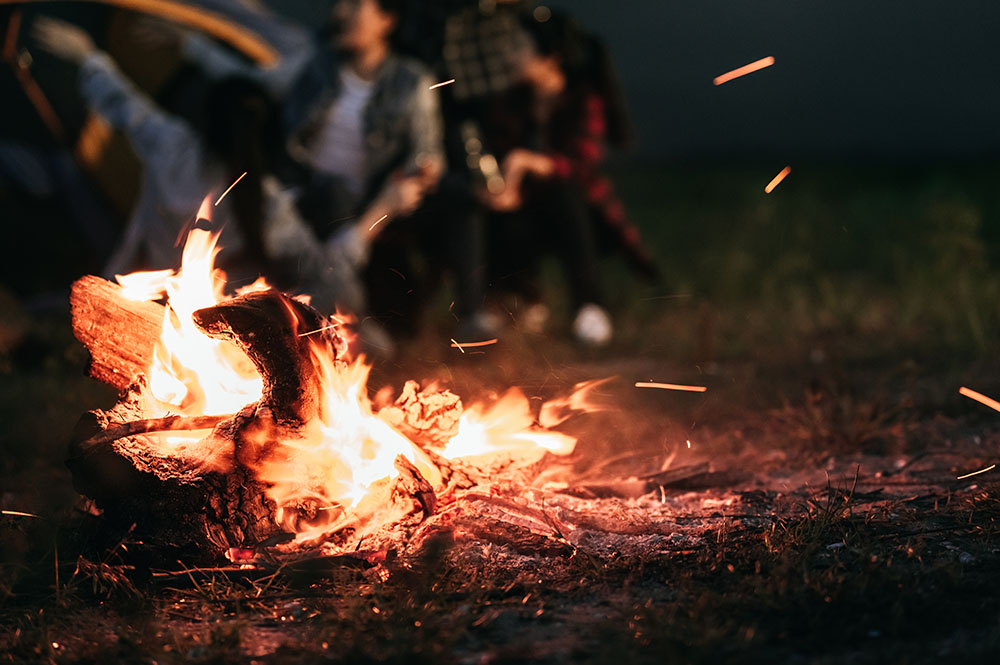How To Prevent A Fire During The Summer

CONTENTS
- Understanding the increased fire risks during summer
- Climate change and its impact on summer fires
- El Niño's effect on summer
- Identifying potential fire hazards in your environment
- Preventive measures for summer fires
- What to do when a wildfire breaks out
- The importance of community involvement in fire prevention
- Policies and regulations for fire prevention
- Frequently asked questions
- Get in touch
The combination of dry heat, human activities, and unpredictable weather patterns can quickly lead to a fire that is difficult to control. With climate change and El Niño's effect on the planet, these risks increase and lead to devastating effects.
At ICE Cleaning, we can provide high-quality fire clean-up services which use air-purification technologies and industrial-grade cleaning solutions. We can clean surfaces of smoke damage, scrub the air, and make your home a safe place to live and work in again.
Read on for practical advice on spotting potential fire hazards, climate change, and El Nino's impact on future summers.
Understanding the increased fire risks during summer
Summer months increase the risk of fires due to a combination of factors. Rising temperatures, long periods of dry weather, and human activities contribute to this statistic.
The sweltering heat can cause grass and foliage to dry out, creating ideal conditions for wildfires. Northern Ireland Direct explains that these conditions are vulnerable to heat from cigarettes or campfires, potentially igniting an uncontrollable fire.
However, it is not just rural areas that are at risk - urban environments can also see more fire incidents during the summer. This is often due to increases in certain human behaviours, such as improperly barbecuing or disposing of cigarettes.
Climate change and its impact on summer fires
Rising global temperatures and prolonged dry spells, fuelled by climate change, are making summers more volatile than ever. These conditions lead to increased fire risks during this season.
The NASA satellite data shows a correlation between rising temperatures and fire occurrences. The higher the temperature, the drier the vegetation becomes, making it an integral factor for wildfires.
Apart from high temperatures, other weather patterns like lightning storms can also spark fires in these dry areas. The effects of climate change do not just mean more frequent fires but fiercer ones, too.
El Niño's effect on summer
El Niño, a climate pattern involving unusual warming of the Pacific Ocean, plays a significant role in increasing fire risks during summer. This phenomenon brings drastic weather changes, contributing to dry conditions perfect for wildfires.
The warmer ocean temperatures associated with El Niño can alter global weather patterns and increase the likelihood of droughts in certain areas. Research has found that an El Niño year sees more forest fires globally compared to prior years.
We need a better understanding and preparedness for these potential fire hazards as they could become even more prevalent due to ongoing climate change.
Identifying potential fire hazards in your environment
Summer has sunny days and warm temperatures, but it can also increase fire risks. Identifying potential hazards in your environment is a crucial first step towards prevention.
A common risk factor is dry vegetation. Heatwaves can quickly dehydrate plants, reducing them into kindling ready to ignite at the slightest spark. Regularly clearing out dead or dry foliage from your garden will significantly reduce this threat.
Fire pits and barbecues are synonymous with summer but require careful management to prevent accidental fires. You must conduct these activities away from buildings or flammable materials and never leave them unattended.
Lastly, note that improperly discarded cigarettes can start fires. Always ensure they are extinguished before throwing them away by placing them in water or stubbing them out in sand.
Preventive measures for summer fires
With the summer heat, fire risks soar. But simple steps can help keep your home safe. Start by keeping barbecues away from flammable materials and always have extinguishers if you intend to use them.
Next, regularly clear dried leaves or twigs in your garden, as they could easily be at risk of igniting. You should also install smoke detectors throughout the house to alert you of any potential danger early on.
Lastly, do not forget about electrical safety: faulty wires often cause fires during hot weather due to increased usage of fans and air conditioners. Consider hiring a professional electrician to come and conduct a risk assessment.
What to do when a wildfire breaks out
When a wildfire starts, immediate action is crucial. By following these steps, you can effectively avoid disaster when a fire breaks out and keep safe at all times.
- Do not try to tackle a wildfire
- Raise the alarm and make sure everyone knows about the danger
- Dial 999 for emergency help immediately and inform them of the wildfire's location
- Keep away from wildfire at all times
- If you are in a car or indoors, close all doors and windows
- Evacuate immediately when advised
- Contact your insurance company if your home is damaged
The importance of community involvement in fire prevention
Fire prevention is a shared responsibility, with community involvement playing a vital role. Active participation from all members can significantly reduce fire risks during summer.
A powerful tool for this purpose is neighbourhood watch programs. These initiatives help spot potential hazards and swiftly report them to relevant authorities.
Beyond vigilance, communities need education on fire safety practices. Awareness campaigns, like those organised by the UK Fire Service, offer invaluable knowledge that could save lives and properties in a fire outbreak.
Policies and regulations for fire prevention
Understanding the laws and regulations around fire prevention is integral. You must conduct regular fire risk assessments, especially if you are a landlord or property owner. This involves identifying hazards and those at risk and then taking action to remove or reduce these risks.
London Fire Brigade also advises how to ensure your home or business is safe from fires during the summer months. Their tips include keeping flammable materials away from heat sources and regularly checking smoke alarms.
Frequently asked questions
What are the fire safety tips for summer?
Maintain your barbecue, keep matches out of children's reach, do not leave open fires unattended and dispose of cigarettes responsibly.
What are the five steps to prevent a fire?
Create escape plans, install smoke detectors, regularly check electrical equipment, avoid overloading sockets and safely store flammable materials.
What is El Niño?
El Niño is when the central and eastern equatorial Pacific Ocean experiences irregular, periodic warming of sea surface temperatures. This can affect weather patterns worldwide.
What is the best fire prevention?
The best prevention combines regular checks on potential hazards around the home environment alongside awareness education. A prepared community can be powerful against fires.
Get in touch
If your property has been affected by fire damage, ICE Cleaning can step in, and provide thorough fire cleaning services. Our fire restoration experts can effectively clean fire-damaged surfaces, using combined air purification technology and cleaning solutions to achieve high-quality results.
Our fire damage cleaning team are available 24/7 for emergency cleaning nationwide. We can be on-site within a few hours of your first call and get to work immediately. You can reach our support team at 0208 066 0360 or enquiries@icecleaning.co.uk to request emergency assistance or a site survey.

Speak with me today,
I’m here to help
By asking you a few questions either via phone or email I can immediately provide a realistic estimation of the cost.
You’re in good company. We’ve cleaned for the following commercial clients… View all

Why choose us?
- Cater to a wide variety of cleaning situations
- Nationwide coverage, available 24/7
- Cater to commercial and domestic clients
- Free survey provided prior to quotation
- Emergency response team
- Offer a bespoke service designed to suit all your needs
- All technicians hold professional health and safety qualifications, including BICSc, IOSH, Dewpoint Professional & Safe Contractor
We’re fully accredited
We place best practise, professional expertise and health and safety at the core of our business. We’re fully compliant with all legal obligations. You can view a list of our accreditations below, or visit our Health & Safety page for more information.











-RGB-small.1707319151.jpg)




















